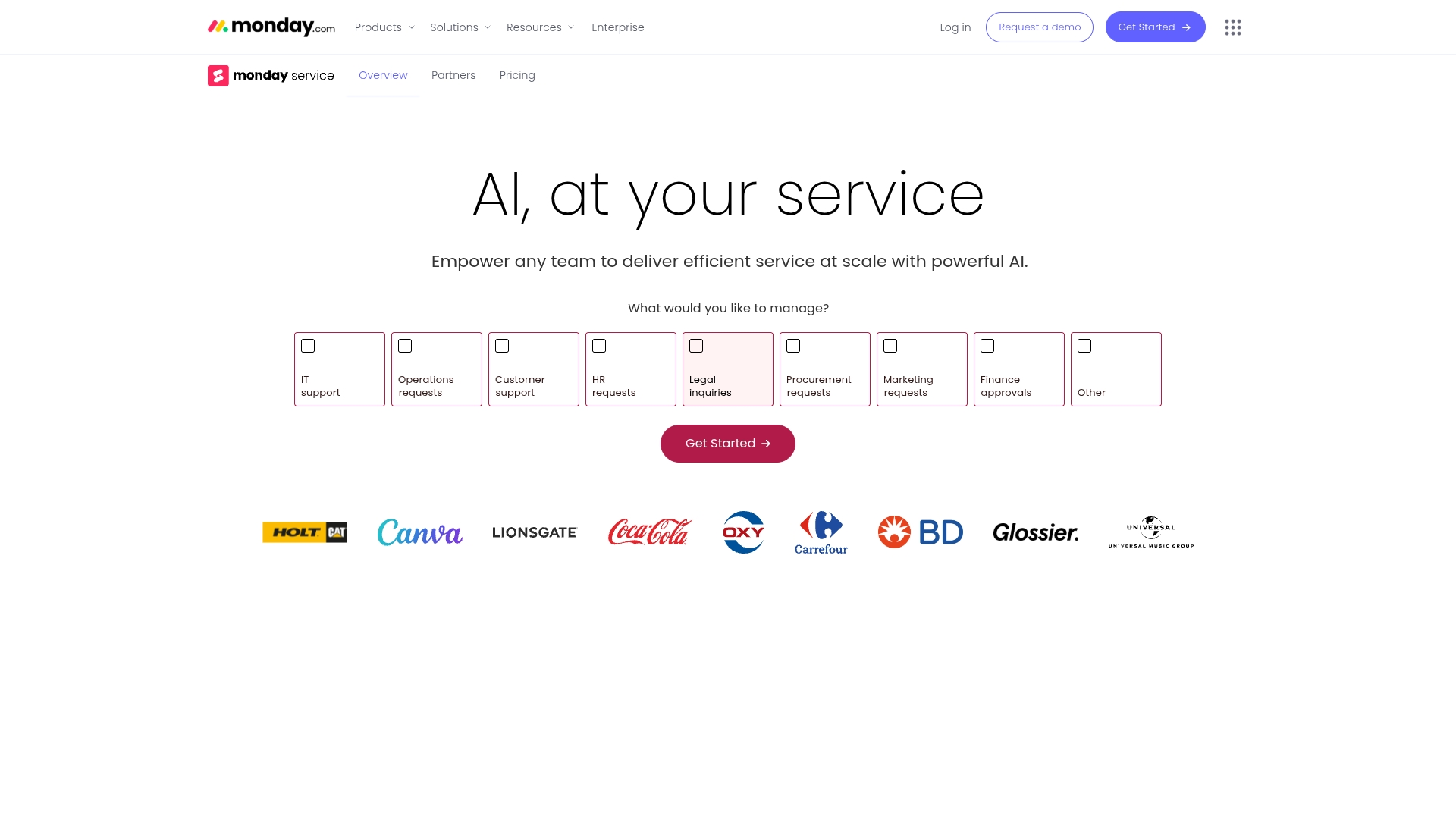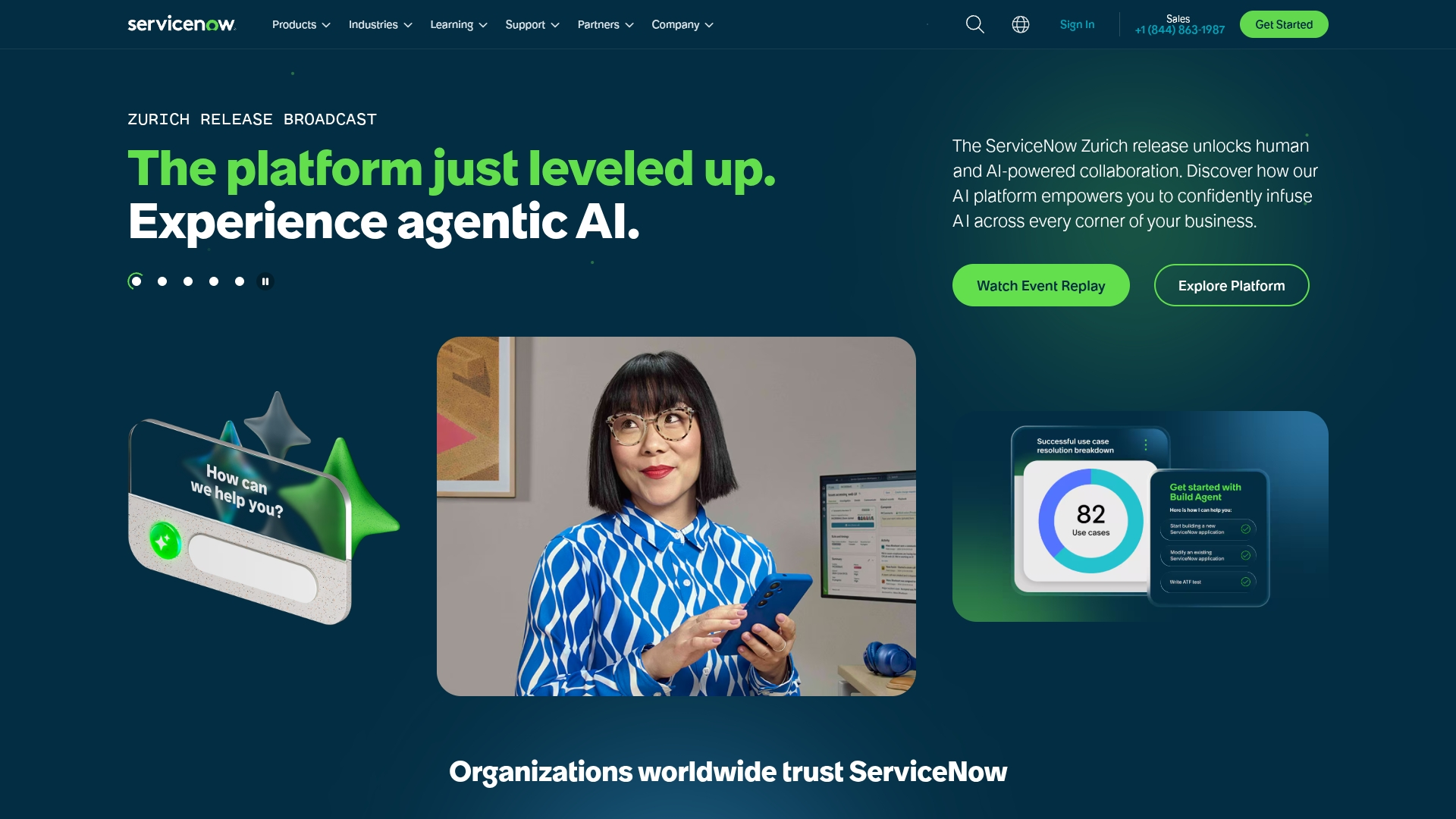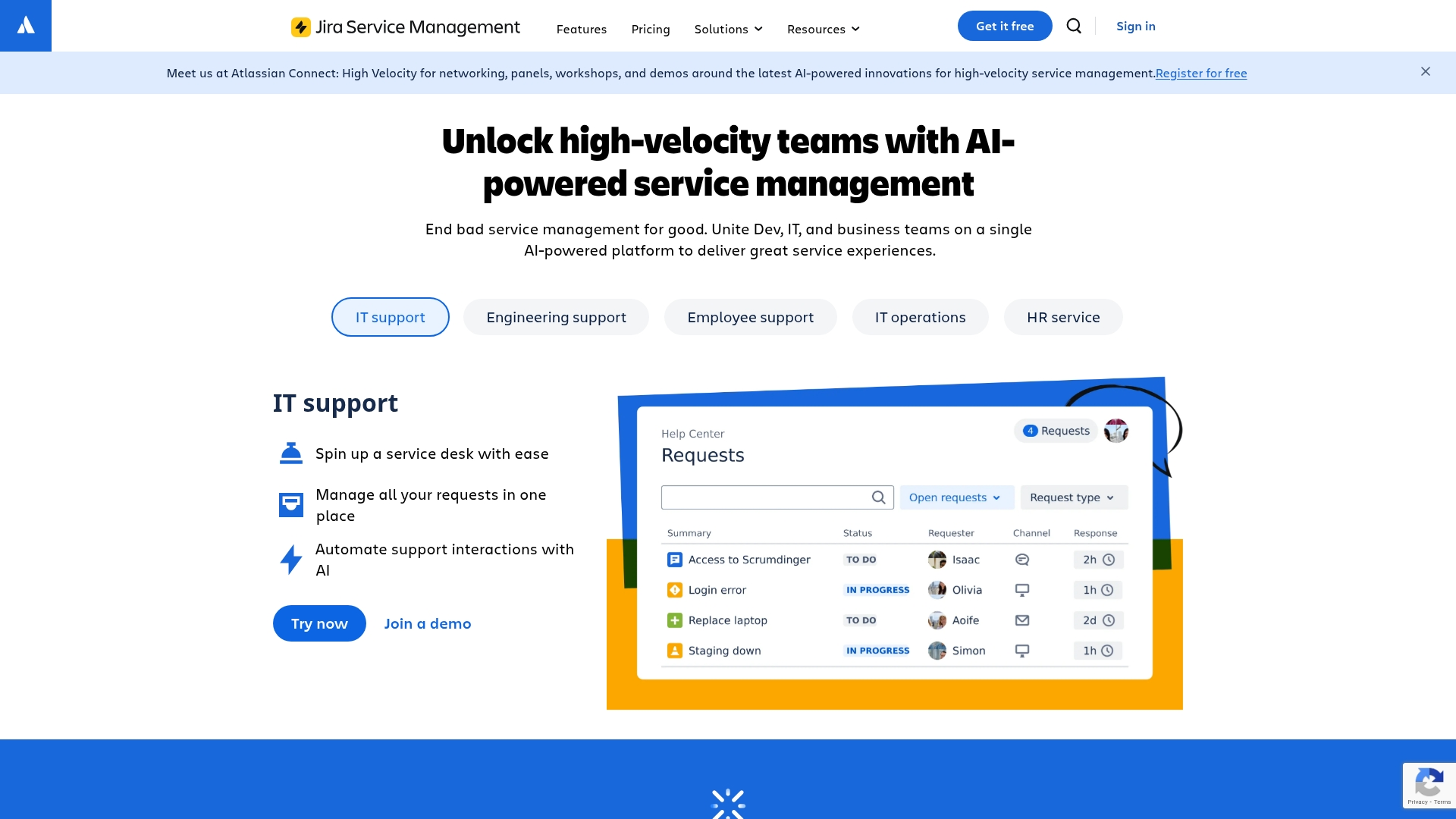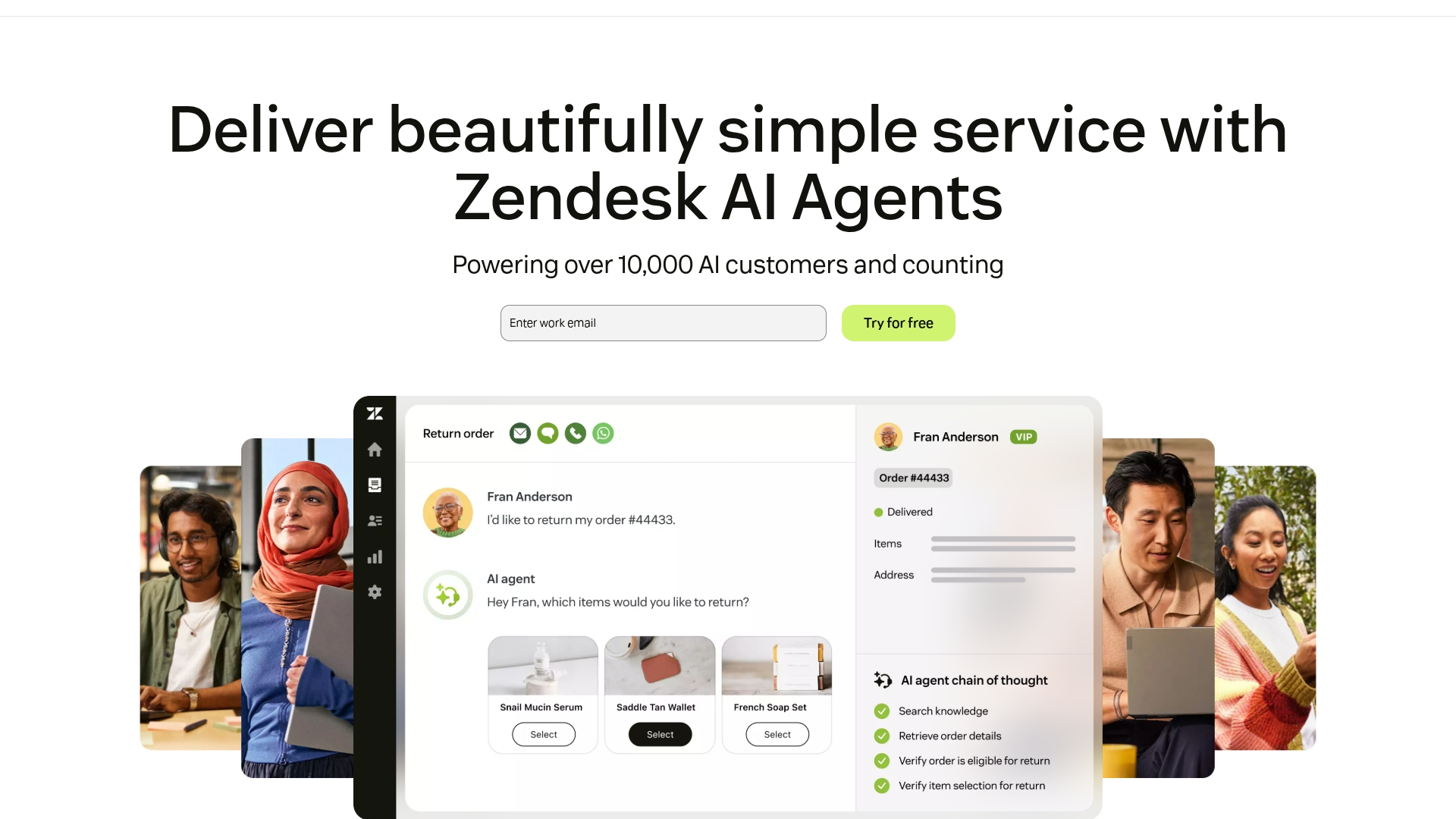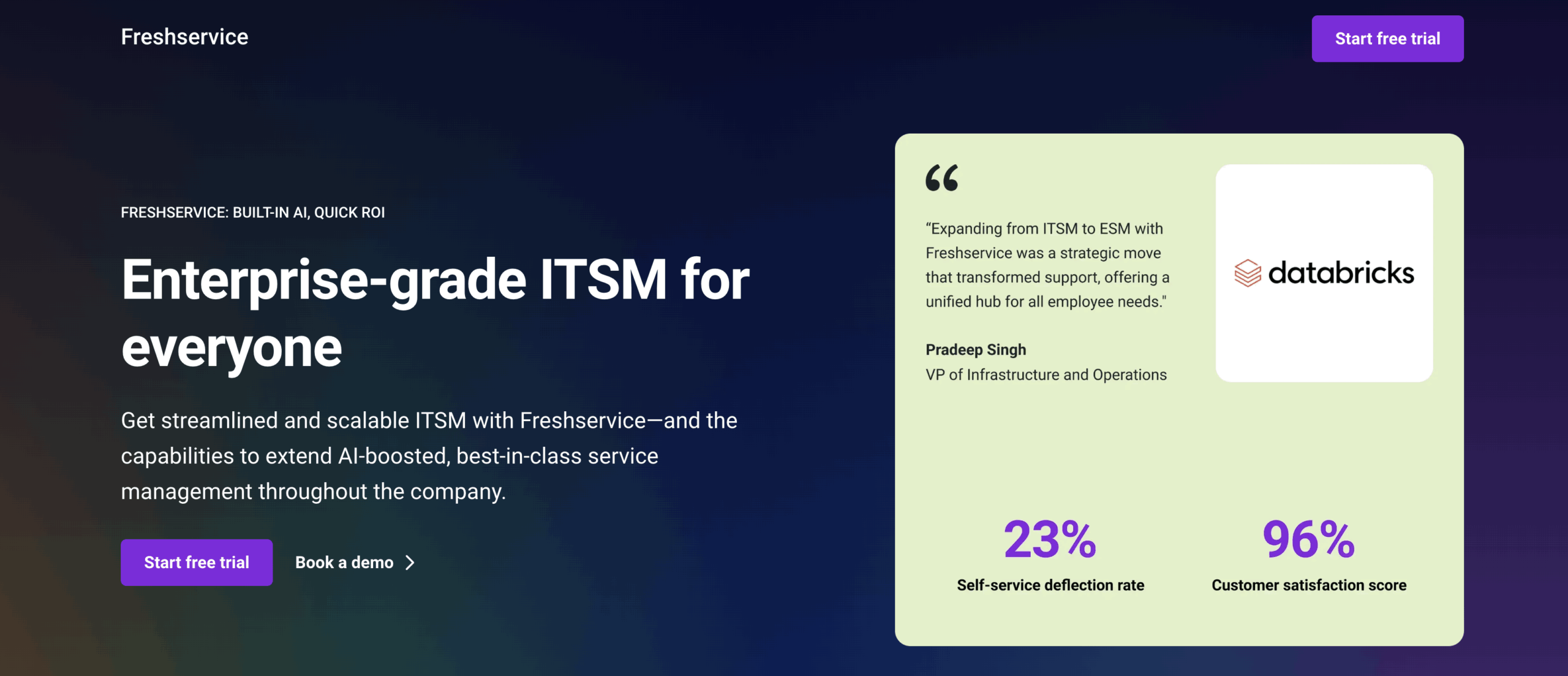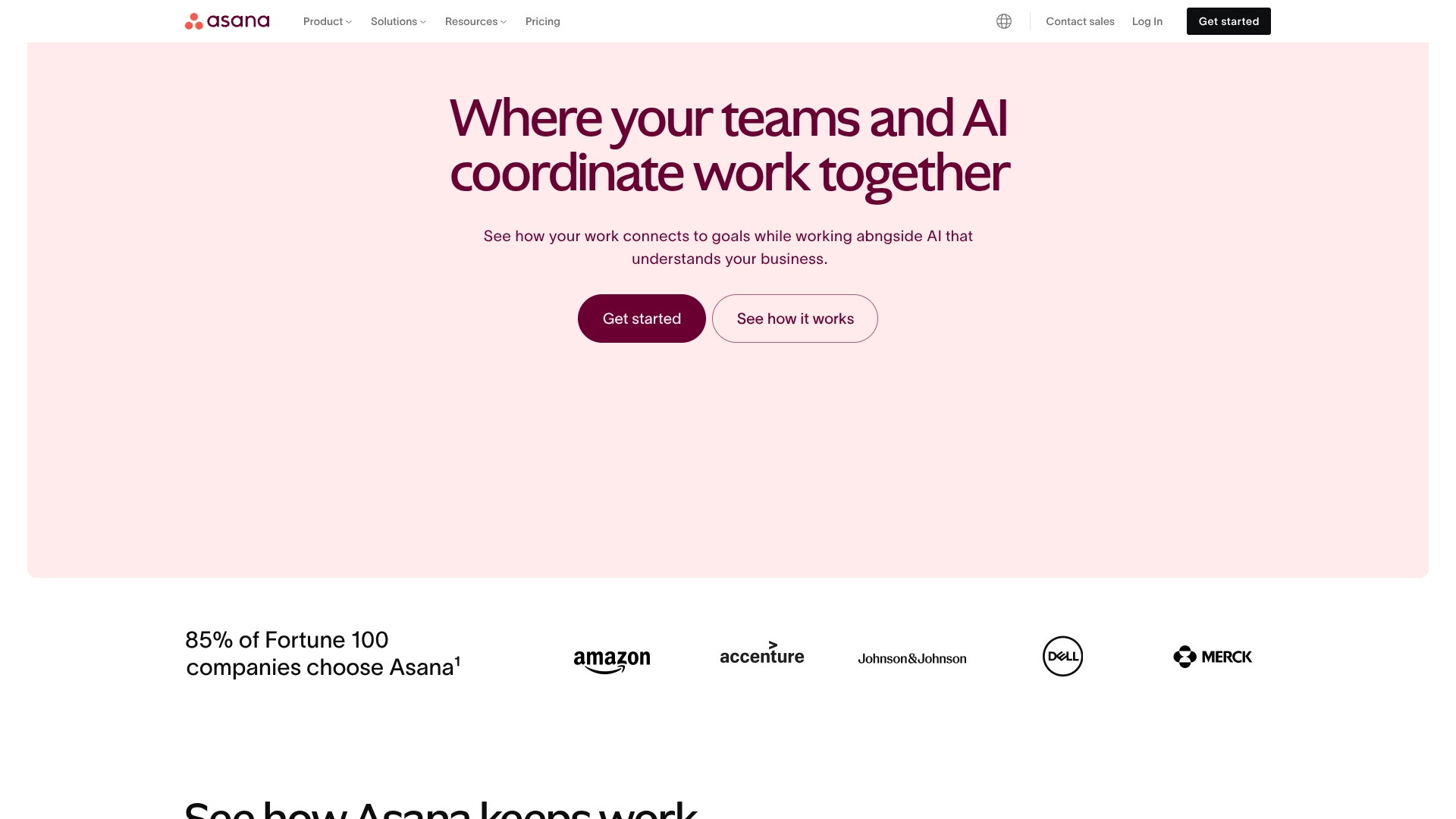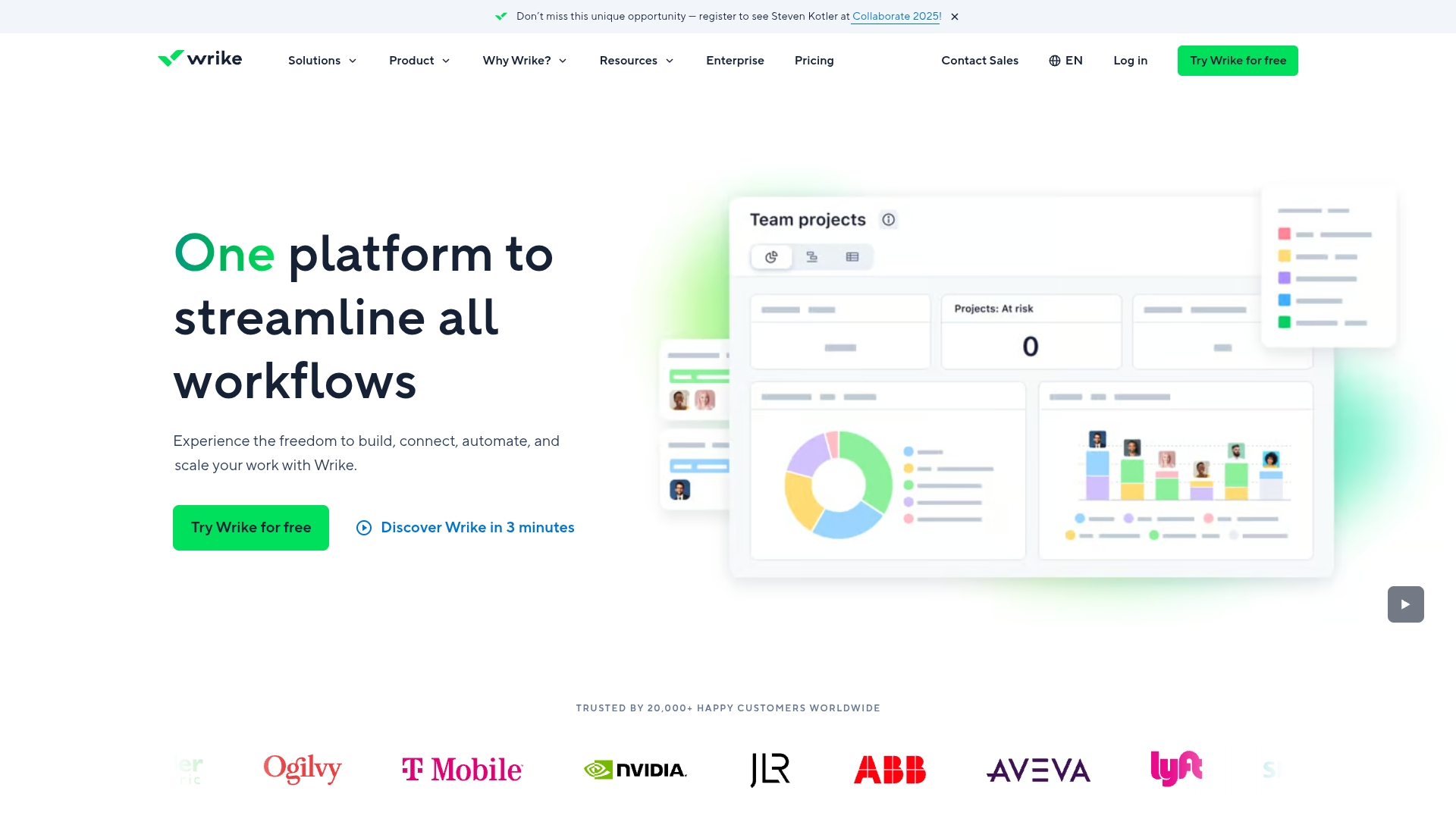Human Resources sits at the intersection of every department, yet its impact is often constrained by manual processes and scattered communication. When every payroll update, benefits question, and onboarding issue filters through separate channels, consistency and visibility suffer — and so does employee satisfaction.
Centralizing these interactions within a dedicated HR help desk creates structure where there was once noise. By consolidating requests, automating responses, and tracking issues in one organized system, teams regain control of their workload and deliver a more responsive, data-driven employee experience.
The best platforms take this further, using AI and automation to predict needs, surface insights, and streamline resolution. What was once an administrative burden becomes a strategic advantage — one that strengthens both HR operations and organizational culture.
Below, we’ll explore how modern HR help desk software achieves this transformation, the key features that define leading platforms, and the tools shaping the future of HR service delivery in 2025.
Key takeaways
- Shift from admin to strategy: the primary benefit of specialized HR software is reclaiming your team’s time. By automating routine administrative tasks and centralizing requests, HR professionals are freed up to focus on strategic work, such as culture development and talent initiatives.
- Unified employee experience software: the platform acts as a singular digital hub for all employee inquiries (from payroll to benefits), replacing fragmented email inboxes and spreadsheets with a single, streamlined, and confidential source of truth.
- Proactive service model: modern systems, supercharged with AI, move the HR function beyond simple “ticket closing.” AI enables instant ticket sorting and routing, allowing the team to anticipate employee needs and deliver a consistent, personalized, and forward-thinking support experience.
- Data-driven optimization: Real-time analytics and reporting capabilities are essential for leadership. These tools offer crucial visibility into service performance, allowing HR to identify systemic bottlenecks, spot emerging employee trends, and continuously optimize service delivery based on concrete data.
- Seamless integration and scalability: the ideal solution must be flexible, intuitive, and integrate effortlessly with existing core HRIS and payroll systems. This setup ensures rapid adoption and allows the HR service operation to scale consistently as the entire organization grows.
What is HR help desk software?
HR help desk software functions as a centralized command center for all people operations. It organizes every employee question, from payroll queries to benefits enrollment, into a single, streamlined digital workspace, enabling your team to focus on impactful work instead of chasing down information. The system is designed to convert a chaotic inbox into a clear, manageable workflow.
This type of platform is engineered specifically for the unique cadence of human resource management. Its intelligence can differentiate between a simple policy question and a sensitive issue requiring a specialist, ensuring every case is handled with the appropriate speed, care, and confidentiality. It is about equipping your team with a platform that is precisely tailored to the work they actually perform.
Ultimately, the objective is to enhance speed and intelligence across the team. By automating routine tasks and providing employees with a self-service portal to find their own answers, the platform frees up HR professionals for more strategic initiatives. With modern platforms like monday service, powerful AI and analytics are layered in, helping you not just resolve tickets but also identify trends and proactively build an exceptional employee experience.
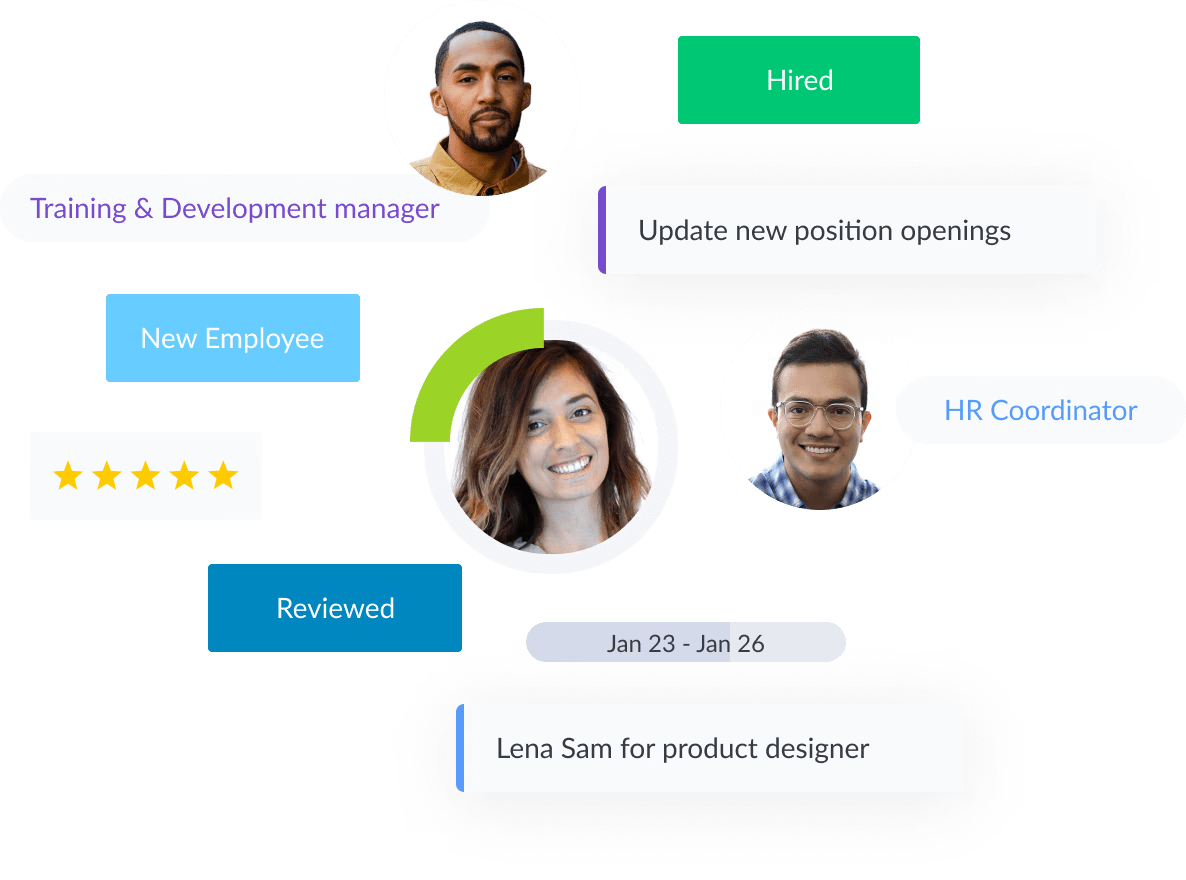
Why HR teams need a specialized help desk
An HR team’s strategic vision for talent and culture is often derailed by an endless stream of requests arriving from every direction. When operations depend on disorganized email threads and cumbersome spreadsheets, valuable time is spent on administrative legwork rather than meaningful connection with employees, a frustration for everyone involved.
A platform built for the specific flow of HR replaces that digital chaos with a single source of truth. It introduces automation to handle common questions, ensuring every interaction is managed with consistency and care. This provides the team with a solid operational foundation that supports their goals and workflows.
This shift empowers HR professionals to reclaim their focus for strategic work that drives significant business value. Centralizing all activities in platforms like monday service unlocks real-time insights to spot trends, giving leadership the clear visibility needed to recognize the team’s incredible impact. The focus moves from simply answering tickets to proactively shaping a superior employee experience.
Core features that streamline HR support
Consolidating every employee request into one organized, collaborative space is crucial. By centralizing everything from onboarding tasks to payroll questions, the system creates a single source of truth that automatically routes work to the correct person. This approach does more than just clean up an inbox; it provides your team with a clear, calm system for managing their workload.
Empowering employees to find their own answers significantly frees up the HR team for more high-impact work. The following core features are essential for elevating your support:
- Self-service empowerment: an intelligent, intuitive knowledge base, often supercharged with built-in AI, delivers instant solutions and drastically reduces the volume of repetitive tickets.
- Centralized workflow: consolidating every request ensures every item is visible and accounted for, automatically routing work to the correct specialist.
- Data-driven improvement: real-time analytics help spot trends, anticipate needs, and pinpoint exactly where processes can be improved, serving as a playbook for optimizing operations.
Ultimately, these insights enable the HR team to demonstrate the immense value of a well-supported team to leadership.
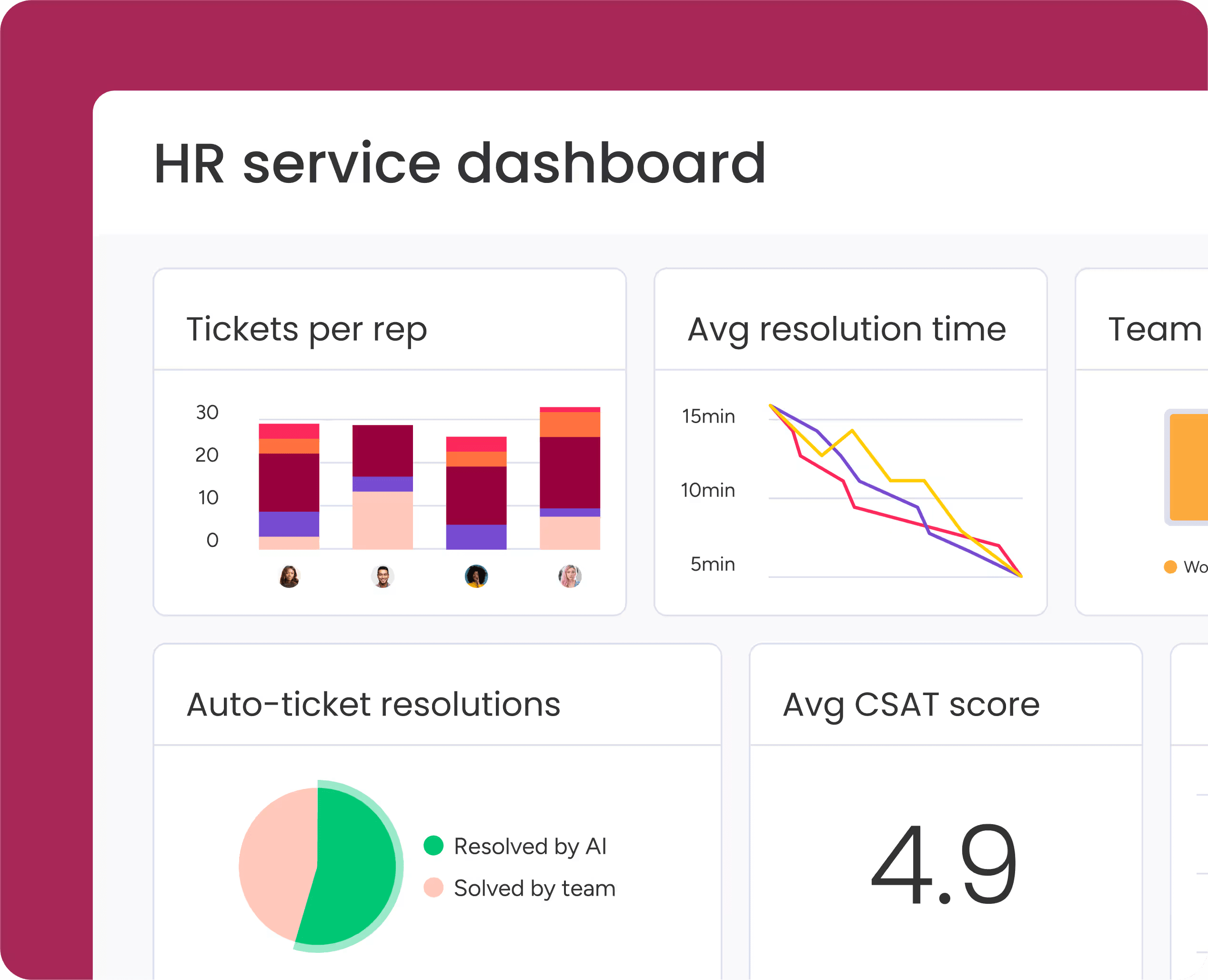
The power of AI and automation for human resource help desks
The brilliance of your HR team can be obscured by a mountain of repetitive requests, leaving employees waiting for simple answers. This dynamic can be fundamentally altered by equipping your help desk with an intelligent core, empowering it to learn, act, and resolve issues proactively. The goal extends beyond closing tickets faster; it is about shifting the entire employee experience from reactive firefighting to personalized, forward-thinking support.
Empowered by AI, your help desk can instantly sort incoming requests, route them to the correct specialist, and suggest optimal responses based on historical data. This strategic offloading frees your team from monotonous processes, allowing them to concentrate on complex problem-solving and fostering genuine human connections. The result is a powerhouse that grows smarter and more efficient with every interaction.
Implementing this technology does not require extensive coding or programming knowledge. Instead, a platform like monday service integrates powerful AI capabilities directly into intuitive drag-and-drop workflows. This design ensures the objective is met: to amplify your team’s expertise, turning your HR help desk into a strategic partner that delivers outstanding support at scale
Choosing the best HR ticketing system
Selecting an HR ticketing system is a strategic decision that goes beyond managing tickets; it involves building the central system for your entire HR service operation. The main points of focus should be:
- Centralized system: the platform must create a central system that simplifies people operations for everyone, building bridges between departments.
- Proactive shift: must move the HR team beyond simply shuffling tickets by connecting operations directly into the flow of work, transforming HR from a reactive support center into a proactive, strategic business partner.
- Simple and scalable: the right platform makes complex operations intuitive, empowering your team to deliver amazing service while building workflows that scale effortlessly for tasks like onboarding or benefits management.

Comparing leading solutions in HR help desk management
Choosing an HR help desk is about finding a platform that aligns with your organization’s unique operational needs and culture. The best platforms do more than just solve problems; they build bridges between departments and turn every employee interaction into a positive outcome.
To help you make the right choice, the following sections provide a clear comparison of leading solutions, highlighting how each excels at unifying systems, ensuring security, and empowering seamless collaboration.
1. monday service
monday service transforms HR help desk operations with AI-powered automation and seamless cross-departmental workflows. The platform specializes in no-code customization and intelligent ticket routing, making it ideal for HR teams looking to move from reactive firefighting to proactive service delivery.
Built on the robust monday Work OS, it connects HR service management with broader organizational processes for truly unified operations.
Example: monday service empowers HR teams to centralize employee requests, automate repetitive workflows, and deliver exceptional service experiences through intelligent automation and real-time analytics.
Key features:
- AI-powered ticket classification and smart routing: to appropriate HR team members.
- Customizable employee self-service portals: with branded interfaces and knowledge bases.
- Automated workflows: for onboarding, offboarding, leave requests, and performance reviews.
Pricing:
- Free: $0 forever for up to two seats with basic features.
- Basic: $9 per seat/month (billed annually) with unlimited viewers and 5GB storage.
- Standard: $12 per seat/month (billed annually) with timeline views and 250 automations.
- Pro: $19 per seat/month (billed annually) with advanced features and 25,000 automations.
- Enterprise: custom pricing with portfolio management and 250,000 automations.
- Annual plans: offer 18% discount compared to monthly billing.
- Nonprofit discounts: available.
Why it stands out:
- Intelligent automation & AI: uses advanced AI to instantly categorize tickets (by urgency, sentiment, and type) and employ smart routing to match requests with the most qualified specialist for faster, accurate resolution.
- No-code workflow customization: the no-code platform allows HR teams to easily customize workflows, build automation recipes for repetitive processes (like onboarding or approvals), and leverage enterprise-scale automation for high-volume support.
- Unified organizational integration: seamlessly integrates HR service delivery with broader organizational workflows and project management, connecting with HR tools, enterprise systems, and calendars via native integrations and a robust API.
- Centralized request management: centralized request management consolidates all inquiries (from IT to policy questions) into a single, searchable system, ensuring complete visibility into service trends and resolution patterns.
- Strategic reporting: provides real-time dashboards and analytics that give HR leaders actionable insights into performance metrics (CSAT, bottlenecks), enabling data-driven decisions for continuous service improvement.
2. ServiceNow
ServiceNow delivers enterprise-grade HR service delivery through a unified platform designed to standardize employee experiences across departments. It specializes in AI-powered automation and complex, cross-functional workflows, making it a powerful choice for large organizations aiming to streamline intricate HR operations at scale.
Example: ServiceNow HR Service Delivery (HRSD) acts as a unified system of engagement that sits on top of existing HR systems, automating workflows and delivering consumer-grade employee experiences across the entire organization.
Key features:
- AI-powered case management: with Now Assist for automated ticket routing, sentiment analysis, and intelligent resolution suggestions.
- Employee Center portal: providing unified self-service access to HR services, knowledge base, and request tracking across departments.
- Lifecycle event automation: for complex processes like onboarding, offboarding, and employee transitions involving multiple departments.
Pricing:
- Custom pricing: based on organizational needs and requirements.
- Professional and Enterprise packages: available with scalable features.
- Pricing information: contact ServiceNow.
Considerations:
- Implementation issues: high complexity and costs can be prohibitive for smaller organizations, often requiring specialized expertise and extensive customization.
- Steep learning curve: for HR teams, particularly on the administrative side, despite the user-friendly employee portal.
3. Jira Service Management
Jira Service Management brings proven IT service management principles to human resources teams, creating structured and efficient HR operations. The platform excels in organizations already using Atlassian products, offering seamless integration with development and IT workflows that makes cross-departmental processes like employee onboarding incredibly smooth.
Example: Jira Service Management applies proven IT service management principles to HR, creating a centralized platform where employees can submit requests, access knowledge bases, and track their inquiries while HR teams automate workflows and maintain confidentiality for sensitive cases.
Key features:
- Pre-configured HR templates: for onboarding, offboarding, and general employee requests with customizable workflows
- AI-powered virtual service agent: deflects common questions and provides 24/7 automated support
- Confidential service desks: with strict permission controls for sensitive HR cases and employee relations issues
Pricing:
- Free: $0/month for up to 10 users with 2 GB storage.
- Standard: $7.53/user/month with 250 GB storage and up to 100,000 users per site.
- Premium: $13.53/user/month with unlimited storage and 99.9% uptime SLA.
- Enterprise: contact sales for pricing with 99.95% uptime SLA and advanced analytics.
Considerations:
- Steep learning curve: for non-technical HR teams due to its project-tracking origins and complex interface
- Limited portal customization options: compared to dedicated HR platforms, which may restrict branding flexibility.
4. Zendesk
Zendesk applies its renowned customer service expertise to internal HR operations, enabling a sophisticated approach to employee support. The platform is renowned for its AI-powered automation and omnichannel ticketing, making it ideal for organizations seeking to deliver consumer-grade service experiences to their workforce.
Example: Zendesk’s HR help desk enables organizations to centralize employee inquiries from multiple channels while leveraging AI automation to streamline workflows and deliver personalized support at scale.
Key features:
- AI-powered ticket classification and routing: automatically assigns requests based on urgency, language, and sentiment.
- Unified workspace: consolidating employee inquiries from email, Slack, Microsoft Teams, and web forms with full employee context.
- Self-service knowledge base: features a knowledge base with AI-assisted content creation and automated gap analysis for continuous improvement.
Pricing:
- Support Team: $19/month per agent (annual) or $25/month (monthly).
- Suite Team: $55/month per agent (annual) or $69/month (monthly) with AI included.
- Suite Professional: $115/month per agent (annual) or $149/month (monthly) with AI included.
- Suite Enterprise: $169/month per agent (annual) or $219/month (monthly) with AI included.
- Automated resolutions included: 5-15 per agent/month depending on plan.
- Additional automated resolutions: $1.50-$2.00 each.
Considerations:
- Extensive customization options: can overwhelm smaller HR teams without dedicated technical support.
- Pricing scalability: pricing scales significantly with advanced features, potentially creating budget constraints for growing organizations.
5. Freshservice
Freshservice provides a comprehensive HR service management solution designed to streamline how organizations handle employee requests and HR operations. The platform is known for its rapid deployment and intuitive design, making it an excellent choice for organizations seeking quick implementation without sacrificing powerful functionality.
Example: Freshservice provides an all-in-one HR service delivery platform that unifies HR tools, automates workflows, and leverages AI to enhance employee experience while ensuring secure, compliant collaboration across departments.
Key features:
- AI-powered conversational agents (Freddy AI): handle routine HR queries 24/7 across multiple channels, reducing manual workload.
- Automated employee lifecycle management: orchestrates complex processes like onboarding, relocations, and offboarding across IT, finance, and legal departments.
- Enterprise-grade security: with dedicated HR workspaces and advanced controls to protect personally identifiable information and ensure compliance.
Pricing:
- Pricing information: visit the Freshservice pricing page.
Considerations:
- Limitations: some users report limitations in reporting capabilities and mobile app functionality compared to the full web version.
- Restricted advanced features: restricted to higher-priced tiers, which may impact budget-conscious smaller businesses.
6. Asana
Asana adapts its powerful project management principles for HR request handling, creating structured workflows that convert employee inquiries into trackable tasks. The platform excels at breaking down complex HR processes into manageable components, making it a natural fit for teams already accustomed to project-based work. Its collaborative framework ensures accountability and keeps everyone aligned on priorities.
Example: Asana applies its flexible project management framework to HR operations, allowing teams to customize workflows for everything from employee onboarding to benefits administration without needing specialized HR software.
Key features:
- Request intake: forms automatically convert employee requests into trackable tasks with custom fields for categorization and priority.
- Workflow automation: automation rules streamline ticket assignment and status updates based on request type or department.
- Workload visibility: multiple project views (lists, boards, calendars) provide different perspectives on HR workload and progress.
Pricing:
- Personal: free forever for up to 10 teammates with basic features.
- Starter: $10.99/user/month (billed annually) with advanced search, custom fields, and unlimited automations.
- Advanced: $24.99/user/month (billed annually) including goals, workload management, and advanced integrations.
- Enterprise: custom pricing with SAML, advanced security, and 24/7 support.
- Enterprise+: custom pricing with audit logs, data residency, and compliance features.
- 50% discount: available for eligible nonprofit organizations.
Considerations:
- Lack of specialized HR features: like SLA tracking and HR-specific reporting found in dedicated help desk solutions.
- Additional requirements: advanced automation and custom field capabilities require paid subscription tiers, which may increase costs for larger teams.
7. Wrike
Wrike leverages its highly customizable work management platform to function as a comprehensive HR help desk solution. The platform specializes in creating tailored workflows and dynamic request forms that can be configured to handle a wide range of employee inquiries, making it ideal for organizations already using Wrike for broader project management.
Example: Wrike serves as a versatile work management platform that can be configured to function as an HR help desk through custom request forms, automated workflows, and centralized task management.
Key features:
- Custom request forms: automatically create tasks for employee inquiries with dynamic questions based on request type.
- Automated workflow engine: routes tickets, sends notifications, and updates statuses without manual intervention.
- Comprehensive analytics and reporting tools: to track resolution times, request volumes, and identify common inquiry patterns.
Pricing:
- Free: $0/month for teams getting started with basic project management features.
- Team: $10/user/month (billed annually) for small teams with unlimited projects and 50 automations per user.
- Business: $25/user/month (billed annually) for organizations with unlimited request forms and 200 automations per user.
- Enterprise: custom pricing with SAML SSO, advanced security, and 1,000 automations per user.
- Pinnacle: custom pricing for complex needs with advanced reporting and 1,500 automations per user.
Considerations:
- Configuration effort: requires significant configuration effort since the platform is not a purpose-built HR help desk solution.
- Lack of specialized HR features: like built-in knowledge bases and SLA management that dedicated help desk platforms offer.
Empower your organization with a seamless HR help desk process
Enable your HR team to focus on their most important role: building an incredible company culture. By automating manual requests, you unlock your team’s capacity for vital strategic talent work. Effective HR service is defined by creating exceptional employee experiences, not just by quickly closing tickets.
Streamlining this entire process is the key to transformation. With platforms like monday service, you gain a central system to manage all incoming requests, leveraging built-in AI and automation to resolve routine issues instantly. This robust system delivers faster, more consistent support while simultaneously freeing your team for the high-impact initiatives that drive the business forward.
To transform your HR function from a reactive backlog into a proactive, strategic partnership, consider a platform that can help you optimize operations and empower your team to deliver the outstanding service your people deserve.
The content in this article is provided for informational purposes only and, to the best of monday.com’s knowledge, the information provided in this article is accurate and up-to-date at the time of publication. That said, monday.com encourages readers to verify all information directly.
Frequently asked questions
What software do HR assistants typically use for employee support?
HR teams use specialized help desk software to centralize employee inquiries and manage requests in a single, organized platform. These systems replace scattered emails with a structured ticketing process that integrates with existing HR tools.
What does an HR help desk do for employee support?
An HR help desk acts as a central digital workspace for all employee questions, converting inquiries into trackable tickets that can be assigned and monitored. It also provides a self-service knowledge base so employees can find answers to common questions instantly.
How does HR help desk software improve employee onboarding processes?
It improves onboarding by automating tasks and standardizing checklists to deliver a consistent, professional experience for every new hire. The software provides a central portal for all necessary documents and tracks progress in real-time to prevent delays.
Can HR help desk platforms integrate with existing payroll and benefits systems?
Yes, modern HR help desk platforms use APIs and pre-built connectors to integrate seamlessly with your existing HRIS, payroll, and benefits systems. This connectivity gives your team a complete view of employee information without switching between tools.
How do organizations measure success with HR help desk management systems?
Success is measured using key metrics like average resolution time, employee satisfaction (CSAT) scores, and first-contact resolution rates. Real-time dashboards track these KPIs, providing actionable insights to help teams improve service delivery.
What security features should HR help desk software include for employee data?
Essential security features include end-to-end encryption, role-based access controls, and comprehensive audit trails to protect sensitive employee data. The platform must also be fully compliant with regulations like GDPR and HIPAA to ensure privacy and avoid risk.
